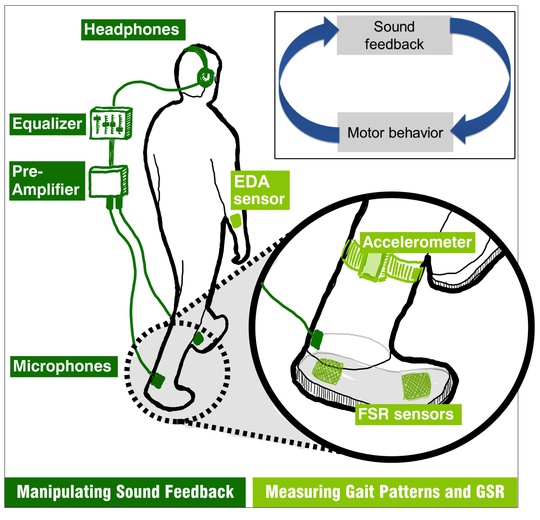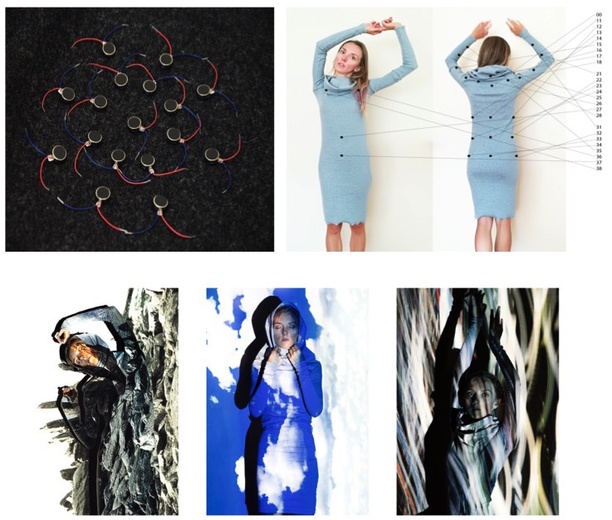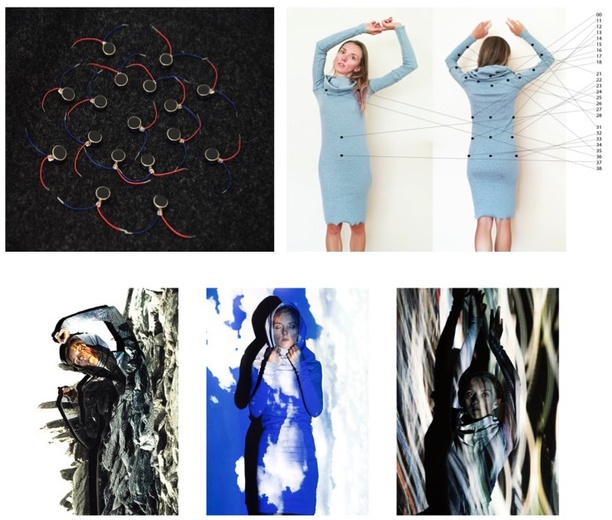Tech Project
Description of the challenges faced by the Tech Project
The aim of MAGICSHOES project is to test the feasibility and potential value of using wearable technology integrating sensory-feedback and body-tracking for improving body-representation, motor behaviour and emotion, and ultimately exercise adherence. At the intersection between neuroscience research on body-representation, human-computer interaction and real-life applications, MAGICSHOES is developing a wearable device that (1) alters people’s perception of their body appearance and capabilities as they move through the use of sound, and (2) measures changes in movement patterns. This technology will be made available to the artist. The challenge would be exploring new solutions for such technology.
Brief description of technology
The artist will have access to all the documentation explaining the project, and to the related bibliography, and will be in close contact with the project team that will provide support and guidance when the artist is elaborating his/her technical approach. The artist will have access to software and hardware for recording, processing and storing audio and other digital data, as well as for capturing motion and emotion related signals from users and delivering audio. These include microphones, amplifiers, equalizers, a bracelet to track emotion related physiological signals from users and movement sensors that connect to computer or smartphones. The artist will be able to use a dedicated computer to process sound in real-time, which uses the software MAX/MSP, as well as a dedicated smartphone. Access to lab consumables for designing the motion/emotion capture system will be also ensured.
What the project is looking to gain from the collaboration and what kind of artist would be suitable
In MAGICSHOES we are exploring how sound can alter the experience of one’s own body. This experience is tightly linked to self-identity, self-esteem, self-efficacy, emoacoustics, and to the way of interacting with the environment. We are rethinking how one’s body experience could be redesigned through the use of sensing technology and sensory feedback to augment human interaction with the environment and to enhance well-being. Artistic considerations are decisive in shedding light on new concepts/methods for inducing sensory and emotional experiences that increase body awareness and/or alter body-perception. We are interested in innovative wearable solutions for tracking body signals (movement, physiology) or delivering sensory feedback. Through the artist’s exploratory work we may explore such new solutions. We had a very insightful experience of science-art collaboration thanks to the Starts Residencies Call 1 and we would like to have an opportunity to pursue some of the questions this collaboration opened.
Resources available to the artist
The artist will be based at one out of 4 locations which are part of the project (Spain, Estonia, UK, France, see project link). Each partner lab offers an unparalleled environment in terms of knowledge and infrastructure for carrying out this multidisciplinary project. The following resources will be made available to the artist: office facility, internet connection, on-site access to research facilities for human behavioural testing, as well as research-dedicated equipment (sensory stimulation equipment, a large catalogue of audio-equipment for recording and delivering sound, motion-capture, electrophysiological acquisition, lab consumables, etc), library access, close contact with researchers working on the project.




